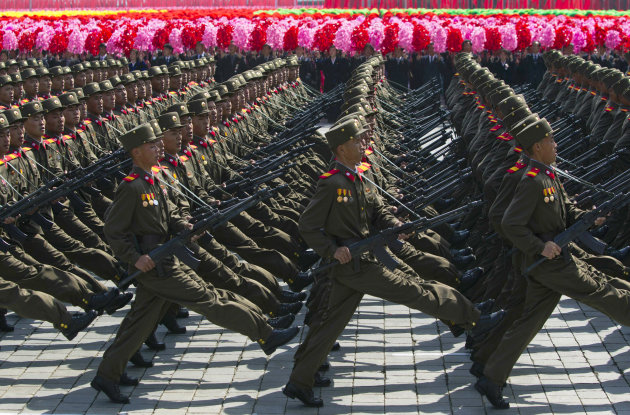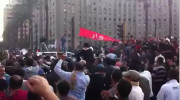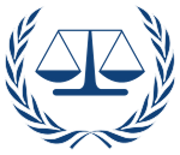Egypt (MNN) ― The clash was inevitable.
After days of protests where thousands of people vented their spleens over President Mohamed Morsi's power plays and the passage of a Sharia-based draft constitution, Morsi's supporters came out en masse.
The two sides pelted each other with rocks, firebombs, and fought with sticks. There seemed to be little military or police intervention as the president's supporters fought with the opposition in the streets.
Despite the unrest, plans for a December 15 referendum on the draft will go move on schedule. Critics say the Upper House of Parliament rushed the draft through passage and there are growing concerns that it does not protect political and religious freedoms and the rights of women.
Christian Aid Mission Africa director, Rae Burnett notes that "most Egyptians are actually secularists. Then, of course, they have a wide Christian community which has been suffering for years but hasn't really said anything because they weren't killing them. They were just keeping them out of the mainstream of society."
In terms of trading one dictator for another, Burnett says under the old regime, "At least they were able to function as churches and do some evangelism as long as they didn't get into the Muslim community, but now they are really afraid because Sharia law is brutal. It's horrifying, and it's not something that secular Muslims want either because it infringes (totally) on their lifestyle."
The more recent moves will change the face of Egypt for a long time. "Our situation here is getting worse day by day," reports an Egyptian ministry leader supported by Christian Aid. Indigenous ministries are growing more concerned each day as they watch radical Islam gain control in Egypt.
In a communique shared Wednesday with Burnett, he wrote, [sic] "The expected war has begun. Right now, while I'm writing, there is a war between the brotherhood army and the protesters. It is expected for many to die in a sea of blood.
They attack them and call the victorious shouts of wars as if they attack enemies. And they're throwing gas bombs and fire on the protests. Also one of the Islamic elders call on satellite channels to take revenge from Christians as they are the reason for not applying Sharia until now. Situation is so dark and desperate. Please pray for us."
Every day there is more and more evidence of what life could look like if Sharia takes over. Sharia calls for one thing: "Either conversion or death to the enemies of Islam, which is anybody who is not a Muslim. It's very scary because Egypt is a very large and influential country." Although Christians have already been suffering economic and educational persecution for many years, this is different. Burnett explains, "The native Egyptian ministries are really asking for our prayers and also our help, because they're really in financial difficulty."
Every day there is more and more evidence of what life could look like if Sharia takes over. Sharia calls for one thing: "Either conversion or death to the enemies of Islam, which is anybody who is not a Muslim. It's very scary because Egypt is a very large and influential country." Although Christians have already been suffering economic and educational persecution for many years, this is different. Burnett explains, "The native Egyptian ministries are really asking for our prayers and also our help, because they're really in financial difficulty."
Many Christians face economic and educational discrimination. However, Burnett says the people they help "have no means of support. They don't work (they're missionaries anyway), but even if they wanted a job, who is going to hire a Christian to work in an Islamic society? They [Muslims] don't do it."
The ministry leader shared that in an earlier demonstration, "Mobs were chanting, 'We want Islam,' and one demonstrator noted, 'It is our country, and those who do not like our law or decisions should leave.' [The demonstrator] then led the crowd to insult badly those who oppose Sharia, singling out and threatening Christians though they were not present"
Tens of thousands of Christians have fled the country due to the increasing danger of being attacked or killed, or their homes and businesses ransacked or set on fire. There have been numerous accounts of attacks where Christians face not only the physical violence of being attacked, but also being arrested for the attack.
Burnett, however, says most of the Christians they're helping are determined to remain. "The people that we're helping don't have any buildings, they don't have any properties, (other than we've enabled them to buy a flat), and they are not denominational. They are independent, indigenous ministry leaders. They have no thought, whatsoever, of leaving."
Burnett, however, says most of the Christians they're helping are determined to remain. "The people that we're helping don't have any buildings, they don't have any properties, (other than we've enabled them to buy a flat), and they are not denominational. They are independent, indigenous ministry leaders. They have no thought, whatsoever, of leaving."
Aside from helping them financially, Burnett says they're asking for prayer. How can we pray? "I would say, just the way I always want people to pray for me: that I would grow in strength of my relationship with the Lord, that I would have His will and His power to be light and life before people, that I would be willing to lay down my life."
The ministry leader adds, "There is widespread talk of continuing the revolution for democracy. Some have even declared they will not be satisfied unless they get rid of that president like they did before. We continue our work of discipleship and neighborhood evangelism, and we are so grateful for all of your prayer and financial support in these dangerous times. It is keeping us alive. Please relay our thanks to all who are helping us."
.png)


.jpg)

